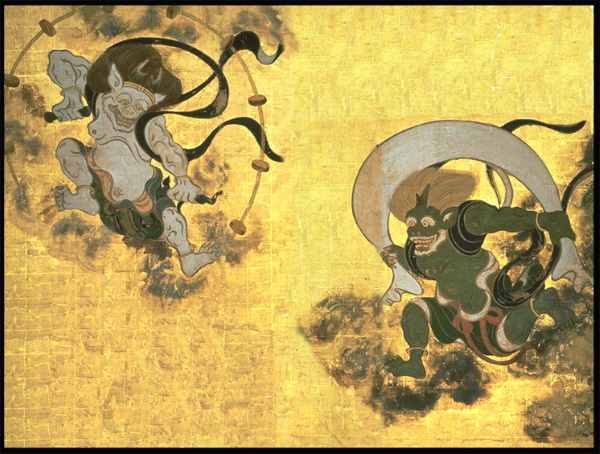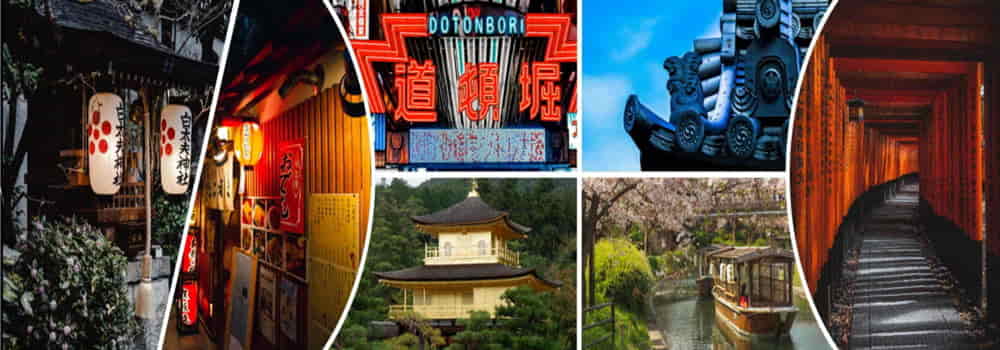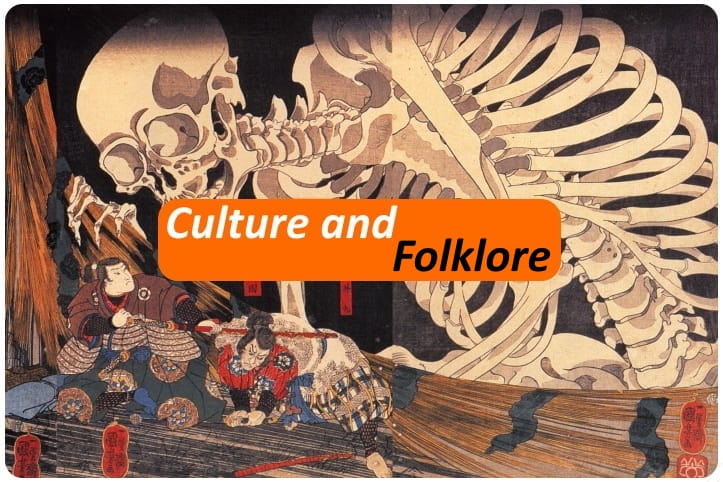Raijin 雷神 and Fujin 風神 the God of Thunder and the God of Wind

Among the most important and well-known deities in Japan, Raijin and Fujin through the centuries have always had an important presence in Japanese culture and society. By transcending religion and folklore we can now find them almost everywhere as in commerce (clothing, gadgets, accessories, ect.) And in entertainment.
Shiritori しりとり Japanese game great for studying
 Shiritori し り と り is an ancient Japanese game that can be played between two or more people. The aim is to form a word with the last syllables of the word previously said. It is also an excellent exercise for those who study the Japanese language, because it helps remember words.
Shiritori し り と り is an ancient Japanese game that can be played between two or more people. The aim is to form a word with the last syllables of the word previously said. It is also an excellent exercise for those who study the Japanese language, because it helps remember words.
You may have seen in some movies or some anime, two people play each other with words. This game is called shiritori.
Ojigi おじぎ Bow in Japan forms and meanings

Bowing in Japan to greet, to welcome or to apologize is part of this culture since ancient times and is truly rooted in every Japanese. We'll see the differences that exist, because the bow in Japan is not all the same, it changes according to the circumstances and whoever is in front of it.
Meishin 迷信 The Superstitions in Japan

In a technological Japan, that always looks to the future, superstitions are well rooted, more than you think and at all social levels. We'll show the most peculiar and strange ones.
Hard to believe right? in a country like Japan, think that superstitions are still alive, and above all that they are many, even if different by location, it is hard to believe. Some are very strange (as often happens here too) other ridiculous, and some disturbing.
Omotenashi おもてなし The art of Japanese Hospitality

Omotenashi お も て な し is a particular "discipline" (but we'll see that it represents more a philosophy of life), imparted to every employee, public or private, of any activity dealing with the customer reception.
For a Westerner, it may appear as the simple training that is done to the staff hired for welcoming customers. But in Japanese society this goes beyond the simple "duty" of welcoming and "serving", enters into the personal heritage of people and affects society in depth.
More Articles …
Page 4 of 7

 English (United Kingdom)
English (United Kingdom)  Italiano (it-IT)
Italiano (it-IT) 






![[Review] Princess Toyotomiプリンセス トヨトミ](https://www.fukainihon.org//cache/mod_jt_contentslider/fdfb524f85518b9476158c79c8ea022f_328.jpg)


